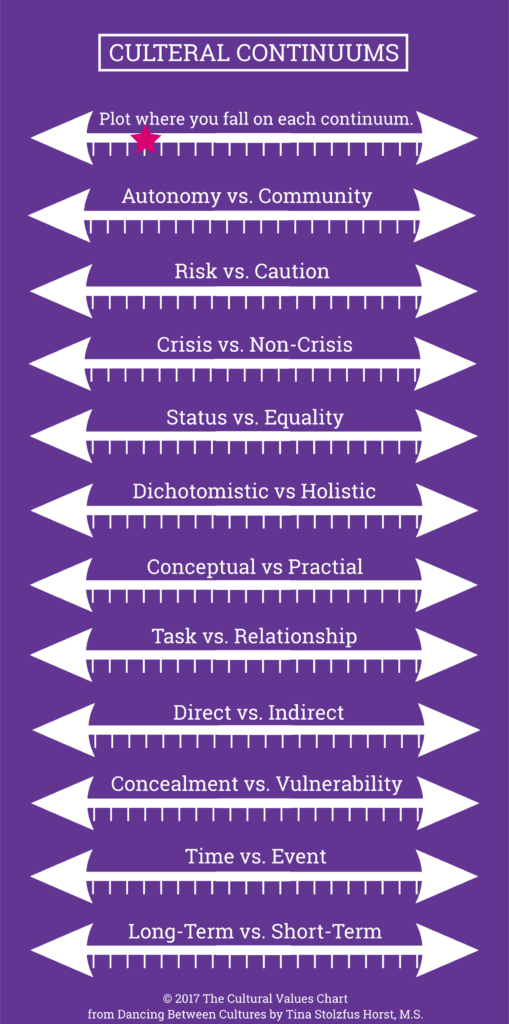Expectations! Your People Can’t Read Your Mind!

Expectations! We all have them, and it’s a common problem among leaders. They expect their people to know exactly what they want done and are amazed and annoyed when it doesn’t happen.
Perhaps not consciously, but you’ve made that mistake too. Think about it, unspoken expectations, aka assumptions, are dangerous! They wreak havoc in your relationships and keep your team wandering in the wilderness of failure. As long as you expect your people to read your mind, you will be disappointed and your people will be confused, frustrated, and wasting time, not to mention your credibility is getting crushed! Yikes!
In working with leaders, the topic of expectations comes up again and again. Do you relate to any of these examples?
Expectations Example #1
You hire someone new, give them the low down on what’s what (or at least you think you do) and then set them free to do their job. You sit back and observe from afar with shocked indignation when they approach their job in a way that’s very different than you anticipated. Maybe they don’t exhibit the care you anticipated, operate with the priorities you had in mind, or worse yet…even overlooking some critical tasks altogether. You may share a comment here or there, but you don’t actually address your concerns specifically or in a way that makes sense to the new team member.
Your silence gives them permission to continue doing what they are doing while you get hotter and hotter under the collar. In your mind, it is abundantly clear what needs to be done and you are annoyed beyond belief that this person is seemingly willfully ignoring it.
Ugh! Expectations! You may be smiling at this point because in print…it seems all the more obvious that expecting someone to read your mind is foolish, yet, at times we all do it, myself included!
Expectations Example #2
Consider the flip side. As a team member, you desperately want to make your leader proud. You want him or her to see your strengths and provide you with opportunities for them to shine.
Instead, what you get are vague directives. In the void of information, you attempt to do what seems best, only to discover that you only half nailed it. As a result, you are frustrated. The leader is frustrated. And the work suffers.
Ugh! Expectations! Have you enjoyed this kind of mission impossible? A leader who expects you to read his or her mind?
A Leaders Job
As a leader, it’s your responsibility to communicate your expectations clearly at the outset. When a task isn’t executed as you hoped, as much as you might want to blame those you lead, it’s not their fault!
When it comes to your expectations, consider this…
1. You Are Not As Clear As You Think You Are!
Your experiences and world view color how you think and what you expect. Take the time to ask questions to find out what the other person already knows and what information gaps they might have. Be sure to clearly articulate what outcomes you are seeking and your deadline. Establish milestones if necessary to keep the project on task. And by all means, take the time to check in periodically to follow up and offer feedback so that you ensure success for both of you.
It’s better to communicate even when it feels like you might be stating the obvious than to not communicate enough.
2. What Motivates You Might Not Motivate Them!
It’s human to think that what motivates you is a universal motivator, however, a wise leader takes the time to discover what motivates those he/she leads. Do you know what goals your people have both personally and professionally? Tapping into their goals in ways that enables you to meet the organization’s goals – that’s a powerful intersection.
If you are a business owner, remember that nobody is going to care as much as you do about your business, even if you are an incredibly motivating person. Your people will care much more about their personal goals, utilizing their strengths, growing their own capacities, and making a difference.
Seek to discover what motivates each individual on your team. You will be glad you did!
3. Your Values Are Yours – They Belong to You!
Whether or not you’ve intentionally identified your Top 5 Values or not, chances are your leadership reflects them in all that you do. Your values are what you are most passionate about – the very things that drive you because they are that important to you. In fact, you are so committed to your values that you are willing to fight for them. That’s big!
When you feel that strongly about something, it’s hard to imagine that the rest of the planet doesn’t share your perspective. But here’s the truth – they have their own Top 5 Values that they feel just as passionate about.
Why not put your values and the values of those you lead to work? Share your values with your people, and encourage your team to identify their values and discuss them together so that you have a reference point from which to work.
4. Your Personality Plays A Role
We enter mind reading territory when we expect others to behave in the way that we would rather than adapting the way we lead to the personalities of those you lead.
Did you know that how you communicate is impacted in part by your personality? It’s true! You can read a whole lot more about that here.
Each personality comes with strengths and weaknesses – areas that come naturally and areas that take more effort. Having a basic understanding of the four DISC personality types allows you to recognize which personality you are dealing with and engage with them and assign tasks that are well suited for them with greater success.
Now might be a great time to have your team take a DISC assessment!
5. Your Thinking Preference Comes Naturally To…YOU!
Did you know that you have a way of processing information – a way of thinking that’s unique to you? As a result, you share information in the way that works for you. You have a bias for communicating facts, form or process, feelings, or the future.
You may naturally sign your name with your right hand. With a little concentration and effort, you may also be capable of signing your name with your left hand even though your signature might look like it did when you were in the third grade. Your preference would be to sign right-handed. However, if something were to happen to your right hand and you were forced to use your left hand, your signature would probably improve because you are capable of adapting.
In the same way, with practice, you are able to convey information in a more “Whole Brain“ way that will resonate with people on your team. Learn more about thinking preferences (HBDI) here.
6. Your Concept of Culture Could Clash
Did you know that in Thailand the “thumbs up” sign is a way of communicating condemnation – a bit like sticking your tongue out at someone?
Or that curling your index finger to communicate to someone to “come here” in the Philippines is a gesture one would only make to a dog?
Those are some dramatic examples, but in reality, there are subtle cultural differences that often create major challenges. Take a look at these cultural differences. You may even want to plot where you fall on each continuum It pays to be aware of your own cultural bias and then pay attention – where might your people might be in opposition to you? There are no wrong or right in these cultural differences, they just are!
7. Your Vague Lingo
Have you gotten into the habit of using vague language? Have you been saying things like…
-
-
- “Rock it!”
- “Step it up”
- “Take it to the next level”
- “Make it happen”
- “Thanks for all you do”
-
Your people will never read your mind and do exactly what you want them to do unless you clearly explain specifically what you are looking for. That means describing the outcome you are after in detail. It might take more time up front, but I promise it’ll keep you from experiencing unnecessary aggravation later!
Beware! If you’ve done their job previously, resist the temptation to want them to do it just the way you did. In fact, they may have a better way!
So, quit expecting others to read your mind and communicate, communicate, communicate – even when it seems obvious. Then watch and see – you might be surprised by what your team is able to accomplish when you do!
And just in case you are tempted, don’t forget you can’t read the mind of your team members either. Resist the urge to assume you know what they are thinking, what their motivations are, or anything else for that matter!
When it comes to expectations – what’s been your experience as a leader? as a follower?


